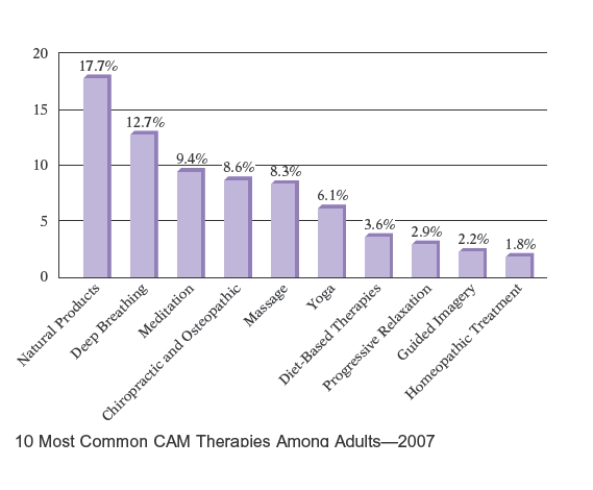The statistics shown in the graph at the below are from the 2007 National Health Interview Survey (NHIS) , an annual in person survey of Americans regarding their health-and illness-related experiences. The Complementary and Alternative Medicine (CAM) section gathered information on 23,393 adults aged 18 and older. (Source: http://nccam.nih.gov /news/camstats/2007/ ) Use the following graph of the 23,393 adults included in the survey, how many use Meditation as part of CAM therapy? Round to the nearest whole number. 
Definitions:
Continuity Theory
The theory suggesting that people need to maintain their desired level of involvement in society in order to maximize their sense of well-being and self-esteem.
Aging
The process of becoming older, a sequence of physical, psychological, and social changes over time.
Midlife Transition
A period in middle adulthood during which people begin to reassess their achievements, goals, and aspirations, often leading to significant personal change.
Daniel Levinson
A psychologist known for his theory on human development, especially regarding stages of life, including the concept of the mid-life crisis.
Q3: There are approximately 300,000,000 people living in
Q25: Hand sanitizer is packaged in cases of
Q41: At the end of the first
Q76: Convert: 13,200 lb = _ tons _
Q78: A spa owner bought hand lotion in
Q78: Midtown Medical Supply has a warehouse with
Q82: Subtract: 86 <span class="ql-formula" data-value="-"><span
Q84: Simplify the following. <span class="ql-formula"
Q85: A hospital dietician had a 50-pound
Q102: Add: 15<br>+<br>67<br>¯¯¯¯¯¯<br>A) 52<br>B) 82<br>C) 1567<br>D) 72<br>E) 92